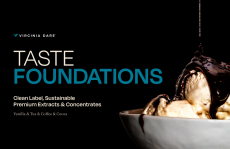Indian juice company finds right formula as brands jockey to differentiate
Paper Boat floats down a stream of confidence in indigenous flavours

This may sound like a grandparent’s whimsy about kinder, gentler times, but it is actually the backstory created by a beverage brand that sees itself more as a thoroughly modern startup than the iconic juice maker its blurb suggests.
Paper Boat, which is owned by Bangalore-based Hector Beverages and features a range of traditional drinks in indigenous flavours like aam panna (raw mango), jaljeera (spice mix from cumin) and aam ras (mango pulp), was launched in 2013. Its parent had gained funding from investors including Silicon Valley venture capitalist Sequoia Partners.
It aims to “preserve traditional recipes while using innovation to make the ethnic Indian drinks accessible to an urban market”, an idea which is said to have originated when one of the co-founders, a former Coca-Cola employee, reminisced about the soft drinks his mother would make for him at home.
In reality, Hector Beverages sets its brand apart within a crowded market by latching on to this emotive image from the past. Indeed, the juice segment has become so cramped in recent years that marketers are being forced to find ways, particularly new subcategories as Paper Boat has done, to set themselves apart from the competition.
Soaring juice growth surpasses soft drinks
India has become one of the fastest growing packaged juice drinks markets globally, according to Mintel.
While, at 1.4 litres last year, per capita consumption is still low with plenty of potential, the country’s retail juice market has registered years of double-digit growth rates in succession.
According to 2017 figures, the market increased in value by 17.3%, reaching sales of INR125bn (US$1.7bn), with a forecast annual growth rate of another 17.3% from 2018 through to 2022.
“Following years of impressive double-digit growth, India's retail juice market overtook the country's carbonated soft drinks market in value for the first time in 2017,” said Julia Buech, Mintel’s global food and drink analyst, attributing this growth to rising awareness surrounding health and nutrition.
Soaring popularity has been attracting entrants to the category, either from scratch or as new releases by established manufacturers. Not least among these have been global players like Coca-Cola, which occupies 32% of the market, and PepsiCo (21%), and big local brands like Parle (18%), which is behind Frooti, and Dabur (13%), which owns Real, the juice market leader among domestic brands. In many cases, the newcomers having been finding ways to stand out.
With this year’s launch of Rani Float, a Middle Eastern juice brand it acquired as part of a US$1bn deal for half of Bahraini parent Aujan Industries in 2012, Coca-Cola hopes to build on its existing properties, including Minute Maid and Maaza. To do so the multinational aims to tap into the health category with the drink, which features real fruit pieces suspended in reduced-sugar juice. This textured formulation will also serve as a key point of differentiation.
Returning to flavor roots
Arch-rival PepsiCo announced in March that it would be returning Slice mango juice to its original fizzy format. Originally an American brand which was discontinued domestically in the Noughties, Slice only remains available in India as a still juice, though that will change after its first category extension since 1993.
To this end, PepsiCo is throwing in a raft of changes to differentiate Slice, most notably by adding carbonation to 10% fruit juice, as well as introducing ethnic flavours like jeera and guava chilli, as well as mainstream flavours, and cutting its price to be 30% cheaper than all other soft drinks sold by the company in India.
“We will shortly be introducing an affordable range of locally relevant fruit juice drinks with fizz under the Slice brand,” said Vipul Prakash, a PepsiCo India senior vice-president, said at the time.
Perhaps most interesting of all the subcategory differentiation is the burgeoning “locally relevant” segment, to which Paper Boat is attached.
Adopting regional and national flavours is a popular strategy because it serves two purposes for drinks brands.
First, it opens up new markets in the all-important second- and third-tier cities across the country where much of India’s population lives. These heartland centres are thriving economically and growing at a blistering pace, and have until recent years been far from marketers’ radars.
Now, having realised how much potential these places hold, brands are cottoning on to the tastes of their less cosmopolitan residents who desire Indian flavours more than their metropolitan counterparts.
Potential acquisition could bolster ethnic drinks
At the same time, they can exploit the growing trend in a thriving and confident India to reflect back on the country’s past. Paper Boat, through its whimsy, has its roots in a tradition started by Patanjali Ayurved, which set out to make desi—as Indian culture is known locally—look cool.
Yoga guru Baba Ramdev’s FMCG vehicle has grown from a small pharmacy to a giant in just a decade, transforming ethnic mineral and herbal food, beverage and personal care products into the mainstream through Ramdev’s yoga-cum-ayurveda nationalism. Patanjali’s success brought it a turnover of INR105bn (US$1.5bn) across all its businesses in the last financial year, registering growth of 111%.
While Paper Boat cannot come close to Patanjali’s might, the rise of the indigenous frontrunner has had a substantial influence on the drinks brand’s market.
Even though the company is still loss-making, it is looking to register Rs1.2bn (US$16.6m) in sales in the current financial year and a net loss of around Rs400m, and by next year it is hopeful of turning profitable. The company enjoys upwards of 40% gross margins, according to its management.
This performance and potential, along with its long-term view as a startup, has attracted interest from potential suitors, most notably Tata Global Beverages, part of India’s leading conglomerate, which was widely reported to be in talks over its acquisition earlier this year. TGB’s strength has traditionally been in premium teas and coffees, as owner of Tetley Tea and India’s Starbucks operation.
If Tata enters into a purchase—Paper Boat have denied the move—it will represent a substantial break in the long narrative of Western cultural dominance in India. It is sure to be a signal that ethnic drinks have become upmarket—something that numerous other brands are hoping will be the case.
















